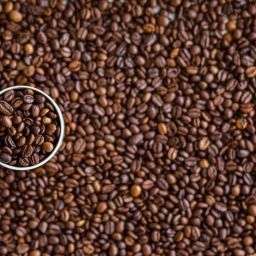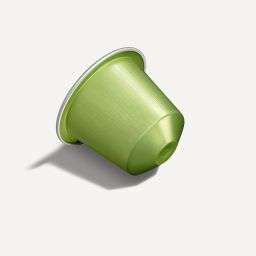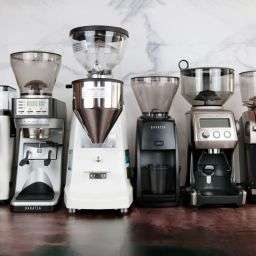
Coffee isn’t just the go-to morning beverage for millions worldwide; it’s also a natural laxative that can help keep things moving. The magic behind this lies not just in its caffeine content but also in other compounds like chlorogenic acid. These components work together to stimulate your digestive system, promoting bowel movements and helping to alleviate constipation.
Key Takeaways
- Personal Variation: Not everyone will experience the same effect from drinking coffee. Your digestive system’s sensitivity and how your body processes caffeine can make a big difference. Some might find relief after their morning cup, while others may not notice much change.
- Decaf Can Work Too: If you’re sensitive to caffeine but still want to explore coffee’s laxative effects, don’t worry. Decaffeinated coffee has been shown to aid in bowel movements as well, though its effects might be subtler compared to its caffeinated counterpart.
- Moderation is Key: Enjoying coffee in moderation can be beneficial for your bowel movements. However, drinking too much can lead to dehydration and other unwanted side effects. It’s all about finding that sweet spot where coffee helps without causing any issues.
- Seek Professional Advice: For those dealing with chronic constipation or other digestive issues, it’s wise to talk to a healthcare professional before turning to coffee as a remedy. They can provide personalized advice and alternative treatment options.
How to Use Coffee Effectively as a Laxative
When exploring coffee as a natural remedy for constipation, the type of coffee you choose can significantly influence its effectiveness. Organic, darker roasts are often recommended for those looking to maximize the laxative potential of their brew. Darker roasts tend to have a higher oil content, which not only enriches the flavor but can also enhance the laxative effect. These oils, combined with the natural caffeine found in coffee, stimulate the digestive system more effectively, encouraging bowel movements.
Benefits of Organic and Dark Roasts:
- Higher Oil Content: The increased oil content in darker roasts can boost the laxative effect, helping to stimulate bowel movements more effectively.
- Less Acidity: Darker roasts generally have less acidity than their lighter counterparts, which can be beneficial for those sensitive to acidic foods and beverages.
- Rich Flavor: Beyond the potential health benefits, darker roasts offer a rich, full-bodied flavor that many coffee enthusiasts prefer.
Instant and Decaffeinated Coffee:
While darker roasts are ideal for some, instant and decaffeinated coffees provide alternatives for individuals with specific health considerations or preferences.
- Instant Coffee: An easy and convenient option, instant coffee can be a good choice for those short on time. However, it might not always offer the same level of effectiveness as freshly brewed coffee due to the different processing methods.
- Decaffeinated Coffee: For those sensitive to caffeine or concerned about caffeine’s potential effects on sleep, decaffeinated coffee is a viable option. Decaf can still provide some laxative benefits, although they may be less pronounced compared to caffeinated coffee. This makes it a suitable choice for individuals looking to avoid caffeine while still seeking relief from constipation.
Drawbacks to Consider:
- Instant Coffee: Some instant coffees may contain lower levels of caffeine and potentially fewer beneficial oils, reducing their effectiveness as a laxative.
- Decaffeinated Coffee: While it’s a good alternative for those avoiding caffeine, the process of decaffeination may reduce some of the beneficial compounds that contribute to coffee’s laxative effect.
Brewing Techniques for Maximum Laxative Effect
Brewing the perfect cup of coffee for its laxative benefits involves more than just pouring hot water over grounds. The key lies in the details: the grind size, brewing method, and water temperature all play crucial roles.
Grind Size: Start with a medium-fine grind. A grind that’s too coarse might not extract all the beneficial oils and caffeine, while too fine a grind could lead to over-extraction, making the coffee bitter and less enjoyable. Experiment to find the sweet spot that works best for you.
Brewing Method: Whether you use a drip coffee maker, French press, or espresso machine, ensure you’re allowing the coffee to brew long enough to extract its full flavor and beneficial compounds. Each method has its own ideal brewing time, but a general guideline is to aim for about 4-5 minutes of contact time between the water and coffee grounds.
Water Temperature: The ideal water temperature for brewing coffee is between 195°F and 205°F. Water that’s too hot can burn the coffee, altering its beneficial properties and taste, while water that’s not hot enough may not extract the full range of flavors and caffeine.
Dosage: Begin with a single cup of coffee in the morning and monitor your body’s response. If you find the effects too mild, consider gradually increasing the amount. However, be mindful of your caffeine tolerance and the potential for overconsumption.
Potential Side Effects and Considerations
While coffee can serve as a natural laxative, it’s important to be aware of possible side effects, especially if consumed in excess or if you have certain health conditions.
Dehydration: Coffee’s diuretic properties can lead to dehydration if not counterbalanced with adequate water intake. Always ensure you’re drinking plenty of water throughout the day to stay hydrated.
Upset Stomach: Some individuals may experience an upset stomach or other gastrointestinal issues from coffee, particularly if consumed on an empty stomach or in large quantities.
Caffeine Sensitivity: For those with caffeine sensitivity, even small amounts of coffee can cause jitteriness, anxiety, or disrupted sleep patterns. Decaffeinated options might be a better choice if you’re sensitive to caffeine but still want to explore coffee’s laxative effects.
Moderation and Medical Advice: Moderation is key when using coffee as a laxative. If you’re experiencing chronic constipation or other long-term digestive issues, it’s crucial to consult a healthcare provider for a tailored approach to treatment.
FAQ
Does coffee really work as a laxative?
Yes, for many people, coffee can stimulate bowel movements thanks to its caffeine content and other compounds like chlorogenic acids that encourage digestive activity.
What’s the difference between regular and decaf in terms of laxative effect?
While regular coffee is more effective as a laxative due to its caffeine, decaf can still offer some benefits. The warmth of the beverage and small amounts of other compounds can mildly stimulate the digestive system.
How does coffee compare to other natural laxatives?
Coffee is quicker acting than some dietary laxatives like fiber, which works slowly by bulking up stool. However, coffee shouldn’t be relied upon as a long-term solution for constipation.
Final Thoughts
Coffee, with its rich aroma and energizing effect, also doubles as a natural laxative for many. Its ability to stimulate bowel movements can be a gentle aid in maintaining regularity. However, it’s essential to use coffee wisely and not rely on it solely for digestive health. Like any natural remedy, it works best when part of a balanced lifestyle that includes a diet rich in fiber, plenty of water, and regular physical activity.
Overreliance on coffee for its laxative effects could mask underlying health issues or lead to unwanted side effects like dehydration or caffeine sensitivity. Always listen to your body and consider consulting a healthcare provider if constipation is a frequent problem.








